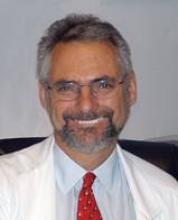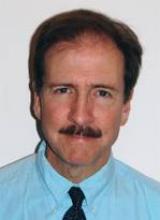Leave Room for ‘Accidents’
Although the last 10 years have seen significant progress in the field of rheumatology, they have also seen a progressive diminution of the role of the independent clinical investigator and a loss of curiosity among younger trainees. While the founders of evidence-based medicine quite clearly did not restrict "evidence" to randomized placebo-controlled trials, many of the younger trainees have been inculcated with the idea that there are no facts without an RPCT. Academic training with this emphasis on "evidence" leads to a number of difficulties in rheumatology. Rheumatologists routinely face situations in which there are no RPCT results to guide decision making. Those of us who were proud that rheumatology was consulted "when no one knew what to do" did not rely on RPCT results because in such a case everyone already knew what to do. As always, most rheumatologists continue to employ the scientific method: observe, hypothesize, test. [This is in fact the stated foundation of evidence-based medicine in the original articles.] The observation may be a paper presented at a recent meeting, a comment by a colleague about their experience in a similar situation, or merely our own accumulated experience. My generation is comfortable with all of these sources of guidance, but they meet with increasing resistance from younger physicians and those in academic residency training programs. One may wonder if this issue has a relevance to the increasing difficulty recruiting resident physicians to rheumatology training.
The current emphasis on evidence-based medicine appears to suppress both curiosity and originality. Individual investigators are limited – by time, funding, and often in rheumatology, by the availability of a sufficient number of similar patients – in their ability to carry out studies. With many newer drugs, the cost of the drug is in itself inhibitory. Investigator-sponsored trials require "selling" the pharmaceutical sponsor on the idea. Large-scale cooperative studies immediately require both an organizational commitment and a higher level of funding, which are inhibitory even if they were readily available, which they are not. Many of the RPCTs on which evidence-based medicine relies in rheumatology are drug company–sponsored trials aimed at FDA approval. Everyone involved knows that the selection criteria for participation have been carefully designed to maximize the probability of success. Typically, that does not maximize applicability to the patient population likely to receive the drug.
Many of the most significant breakthroughs in medicine have derived from "accidental" discoveries. In the current environment it is becoming progressively more difficult for individual physicians to expand on their observations and bring new evidence to the field. One cannot get insurance company approval for an expensive drug approved for disease X to treat disease Y because they saw dramatic improvement in a case that had both X and Y in the recent past. Nor is one likely to get funding for an investigator-initiated trial from the pharmaceutical company or any other source. In many cases the observation may have been a fluke, but how many potential breakthroughs can we afford to ignore if we hope to see dramatic progress? At present medicine is the only scientific field in which individuals are being actively discouraged from trying something new. Rheumatology has made some breakthroughs in the last 10 years. We are in need of many more academically excellent trainees and curious investigators who recognize that evidence-based medicine as it is currently being taught is solidification of the past, not the path to the future.
Thomas J.A. Lehman, M.D.
Chief, Pediatric Rheumatology at the Hospital for Special Surgery in New York
No Regrets
It’s a pleasure to look back with my esteemed colleagues on these last 10 years of Rheumatology News. First of all, I think I speak for most rheumatologists when I say that I have never regretted my decision to go into rheumatology. Our specialty continues to be a most fascinating mixture of extraordinarily interesting immunology and pathology and deeply personal, long-term relationships with our patients. We truly have always had the best of both worlds. But who would have thought 20 years ago that rheumatology would now be the most daringly innovative and successful specialty in terms of therapeutic development in all of medicine? Talk about gravy. Allow me to congratulate all of us on making an excellent career choice! Here are some of my picks for the last and next 10 years.
Most important basic science advancements: The ongoing dissection of the contribution of the innate immune system to the pathogenesis of rheumatic disease, especially lupus, number high in this category. Another achievement has been defining and exploiting the regulatory pathways in the immune system, including regulatory T cells (Tregs). We continue to unravel what rituximab is telling us about the role of the B cell in rheumatic disease. I applaud our acceptance of the translational approach to the rational design of therapeutics, relying on basic science rather than serendipity.



